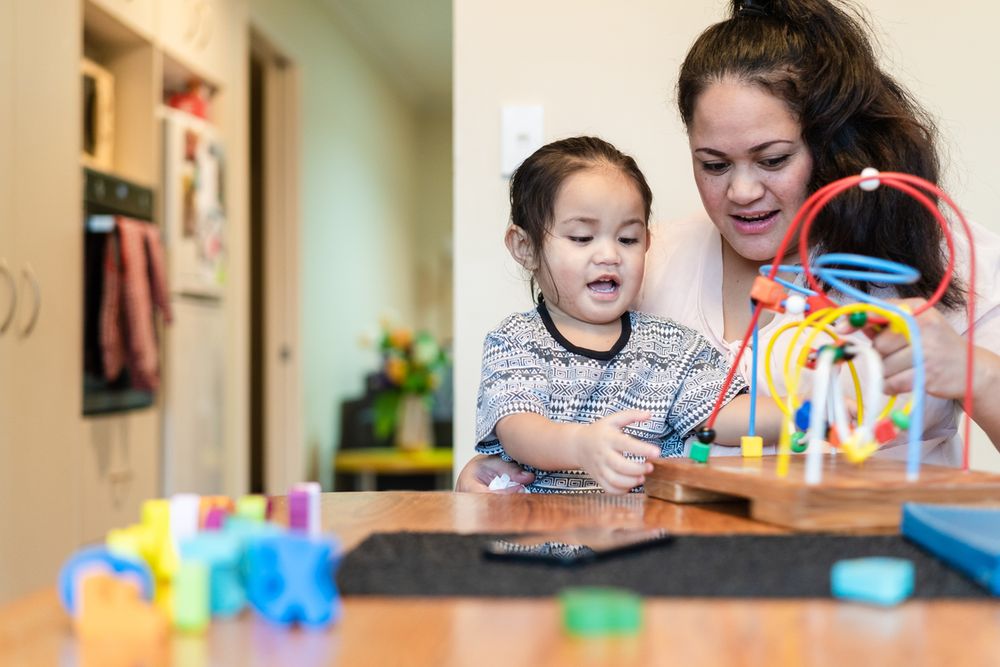What outcomes to expect from early childhood education
Published on Wednesday, 03 April 2019
Last updated on Monday, 16 November 2020

There's no doubt that high quality early childhood education (ECE) provides an enriching start to your child's life.
As well as teaching youngsters new skills and expanding on what they've already learnt, ECE services and kōhanga reo also build a strong foundation for their future success - arming your child with the skills, knowledge and confidence to help them become lifelong learners.
With this in mind, here are some early learning outcomes that you can expect when you put your child in a high quality early childhood service.
1. Your child will reap the benefits of an individualised early learning programme
Whether your youngster attends an early childhood education (ECE) service or a kōhanga reo, Te Whāriki sets out the curriculum for early learning in this country.
Te Whāriki translates as 'the woven mat' and it provides a framework of principles and strands that help educators to weave an individual learning programme for each child, with help from their parents and whānau.
The programme takes into account your child's particular interests and strengths, what they've learnt from you already, plus the learning opportunities on offer at your ECE service or kōhanga reo.
Since Te Whāriki is underpinned by the four principles of Empowerment, Holistic Development, Whānau and Community, and Relationships, this curriculum aims to bring out the best in your child and support them as they learn and grow.
2. Your child will enjoy positive long-term outcomes
Although the early childhood years represent a relatively small part of your child's life, they play a large role in laying the foundations for their later success.
With a focus on five learning areas (Wellbeing, Contribution, Belonging, Communication and Exploration), Te Whāriki strives for your child to become:
- A confident and competent learner and communicator
- Healthy in mind, body and spirit
- Secure in their sense of belonging
- Secure in the knowledge that they make a valued contribution to society
ECE also helps children forge links and form relationships, see the world in different ways and harness their potential - now and going forward.
3. Your child will learn skills and develop behaviours at ECE
Although every child progresses at their own pace and has different interests and aptitudes, ECE helps your child to learn and develop in five key areas: Physically, socially, emotionally, cognitively and linguistically.
Here are some ways that children aged three to six gain experience and skills in the early learning environment:
| Developmental area | Behaviours |
|---|---|
| Physical | At an ECE service or kōhanga reo, your child will:
|
| Social | Your child will:
|
| Emotional | Your child will:
|
| Cognitive | Your child will:
|
| Language | Your child will:
|
4. There will be opportunities for parental involvement
Although you may not be physically present during day, there are ways for you to share in your child’s experiences.
ECE services and kōhanga reo record each child's progress by putting together photos, learning stories and observations, along with examples of your child's work; so you're encouraged to look through this portfolio-style book and share the content with your child.
You're also encouraged to discuss your child's progress with educators to help them plan your youngster's learning.
And, of course, you'll see what your child has learnt at ECE in the way they develop and grow as a person. As they learn to do new things and interact in new ways, you'll see, first-hand, the positive outcomes associated with early childhood education. Enjoy!
Reference
The Ministry of Education
Related Articles

An overview of education and care centres
Everything you need to know about long day care centres, including what they do, how much they cost, how to spot a good one and how to get a spot.

The value of visiting child care services
Visiting child care centres offers valuable insights and opportunities to ask questions, which makes it easier to decide which service is right for your family.

An Overview of Child Care Costs and Government Funding
Fees for early childhood education services and kohanga reo, and how the government helps families pay for early learning and child care.
